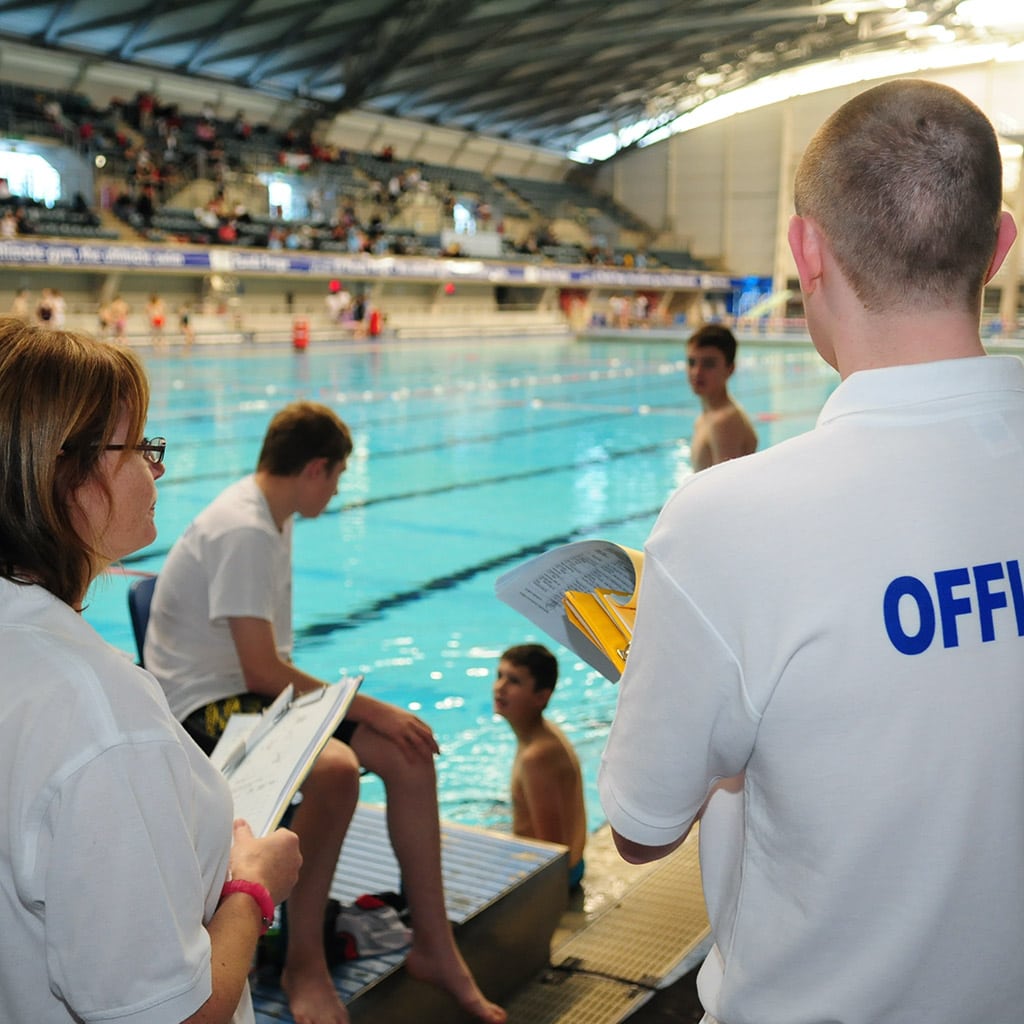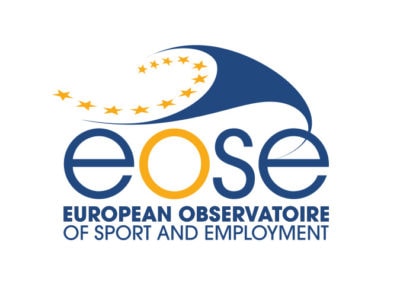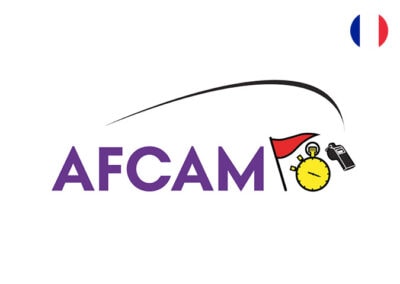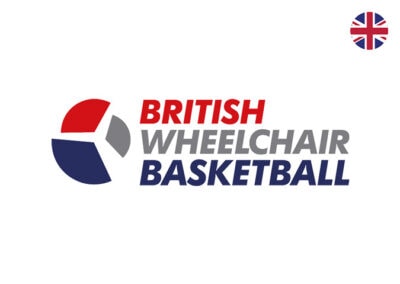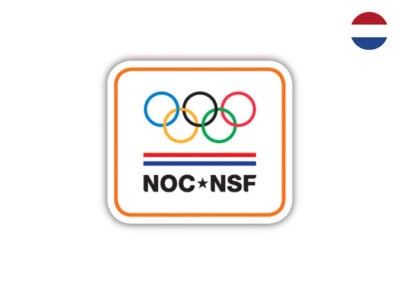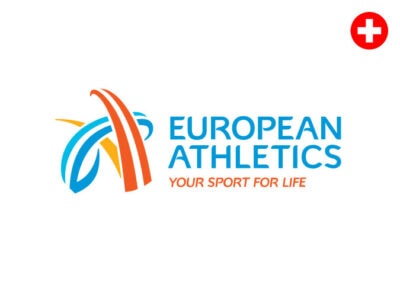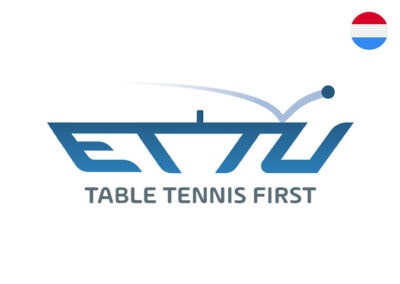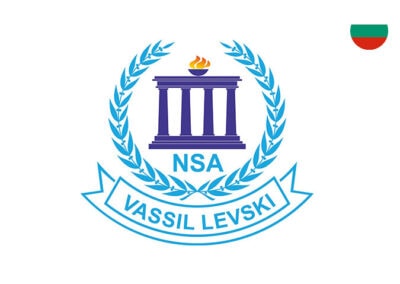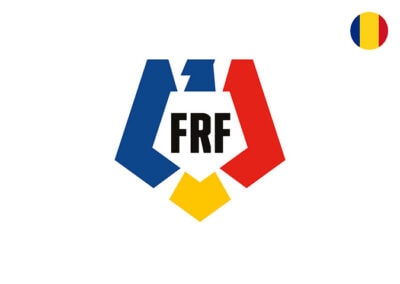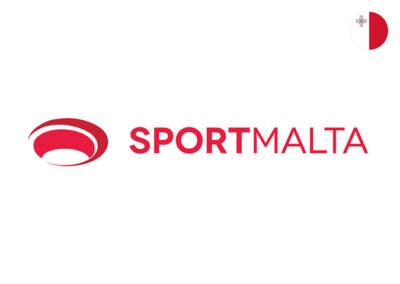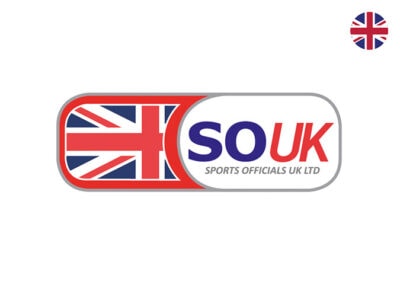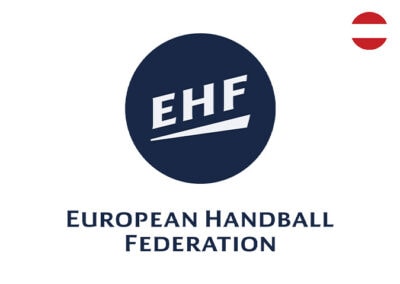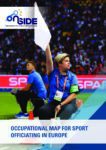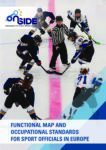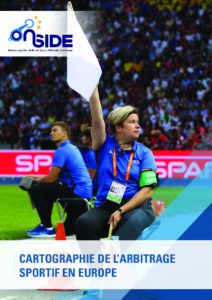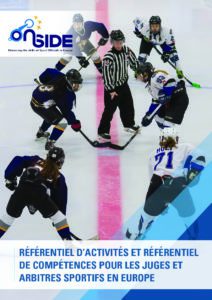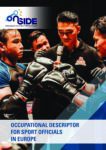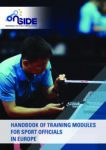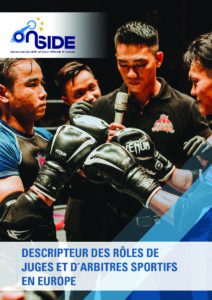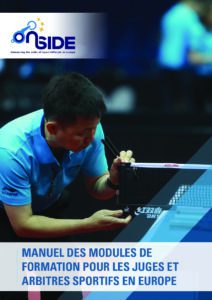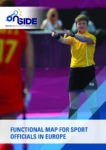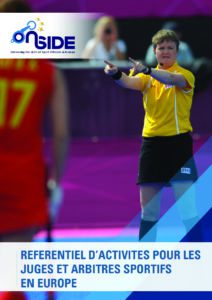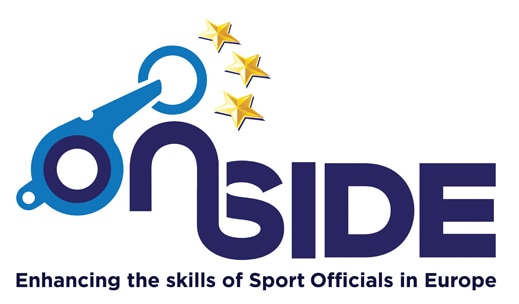
ONSIDE Project
NO SPORT OFFICIALS = NO SPORT
The ONSIDE project was funded under the Erasmus+ Sport Programme of the European Union and had a duration of three years from 2018 to 2020.
Background
Without sport officials across Europe giving up their time, sport in the EU would grind to a halt and be unable to function. Sport officials (umpires, referees, judges, etc.) provide necessary guidance and support, so that participants and spectators can have a safe, positive and enjoyable sporting experience.
Sport officiating is central to developing, sustaining and increasing participation in sport by offering a fair, safe and enjoyable environment for participants. Officials also undertake an important role in the staging of sport competitions, providing leadership and guidance to participants, ensuring that the competition is conducted in a safe and fair manner. Sports officials are the guardians of standards for sport.
No sport policy or objective can be achieved without sport officials. The recruitment, training and retention of sport officials are of vital importance to all sports, at all levels, in all nations.
The ONSIDE project was based on the development of European industry-led Occupational Standards and relevant training material for sport officials with the goal of improving the recognition of sport officiating and developing new routes for recruitment, training and retention.
The Lifelong Learning Strategy for Sport and Physical Activity (7 Step Model) provided the overall methodology which was implemented though the ONSIDE project to deliver the expected intellectual outputs.
Aim
The ONSIDE project provided the opportunity to define the generic skills and competences common across different sports and needed by sport officials, and then to develop training strategies and modules that could be used by any sport.
The project met specific needs of the sector including to fill the gap in research into sport officiating, to define the generic skills and competences of sport officials and to promote education in sport through targeted pilot education.
The project achieved the following objectives:
- To conduct a reliable and valid research to collate data and underpin European sector-wide activity in the area of sport officiating
- To define the generic skills and competences of sport officials, which are common across different sports and considered as a gap in Europe
- To promote education in and through sport in the area of sport officiating, creating new training pathways and development opportunities for sport officials to enhance their skills
- To promote sport officiating as a voluntary activity in sport that enhances social inclusion and equal opportunities
- To bring together the most relevant stakeholders for the first time to strategically develop the area of sport officiating at the European level
- To increase the visibility and recognition of the area of sport officiating
Expected Outputs
OUTPUT 1: European Desk Research and Occupational Map on Sport Officials
The first step of the project was a European Desk Research conducted to collect available qualitative and quantitative data to analyse and provide a concise overview of the realities, characteristics, tendencies and challenges of Sport Officials in Europe.
This presented an overall frame of reference for sport officiating in EU and provided the background for the development of relevant Occupational Standards and fit-for-purpose e-learning courses.
OUTPUT 2: Occupational Descriptors for Sport Official positions
Next, the partnership developed “Occupational Descriptors” for all main positions identified within the area of sport officiating in Europe. The aim was to identify existing sport official positions and for each of them to define existing commonalities, specificities and differences (e.g. referee, umpire, judge).
An occupational descriptor identifies key tasks/duties, responsibilities, skills and attributes which relate to a specific position as well as personal requirement, knowledge, qualifications and career routes.
OUTPUT 3: Functional Map for Sport Officials in Europe
The functional map can be considered as a graphic representation that precisely describes the work activities taking place across an occupational sector. The objective of the Functional Map was to provide a complete breakdown of all generic functions and work activities that need to be carried out by Sport Officials in Europe.
OUTPUT 4: Occupational Standards for Sport Officials in Europe
The Occupational Standards are made up of units of competence describing the skills and knowledge necessary to perform as a Sport Official in Europe.
The focus of the standards is on generic skills and competences of sport officials, which are common across different sports, such as for example decision making, honestly, fair play, ethics, integrity, conflict management and communication.
OUTPUT 5: Handbook of Training Modules for Sport Officials in Europe
The goal was to use the content of the Occupational Standards to develop a relevant Handbook of Training Modules for Sport Officials to help them reach the level of competence required to perform and match the identified requirements / expectations.
The Handbook of Training Modules was made up of a number of training modules including units of learning outcomes as well as teaching and assessment strategies in line with the Occupational Standards.
OUTPUT 6: Innovative e-learning Courses for Sport Officials in Europe
From the Handbook of Training Module, the partnership selected the most relevant modules and designed and developed detailed content and structured material for each of them.
OUTPUT 7: Guide for Sustainability and Quality Assurance Strategies
The Guide for sustainability and quality assurance strategies can be considered as the final step and its main goals were to explore the processes to enhance the chance of continuity and implementation of the Occupational Standards and innovative e-learning courses for sport officials in Europe beyond the life of the project.
Partnership
The consortium working together to achieve the ONSIDE project brought together a selection of 11 partners from 9 different Member States having a recognised expertise, knowledge or interest to develop the area of sport officiating.
Coordinated by EOSE, the partnership included a unique combination of 3 International/European sport federations, 2 national sport federations, 1 national sports council, 1 national Olympic committee, 1 university, and 2 national associations of sport officials.
ONSIDE Library
Below you can find the final published outputs from the ONSIDE project
ONSIDE Occupational Map
English
ONSIDE Occupational Standards
English
ONSIDE Occupational Map
French
ONSIDE Occupational Descriptor
English
Contact
Need to know more about the ONSIDE project?
Willing to take part in the dissemination and consultation process?
Interested in working with the ONSIDE project partners or share ideas/suggestions/good practice ?
Get in touch, we will get back to you as soon as possible.
